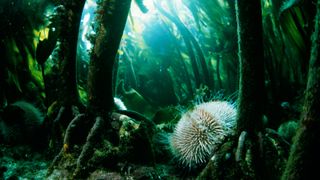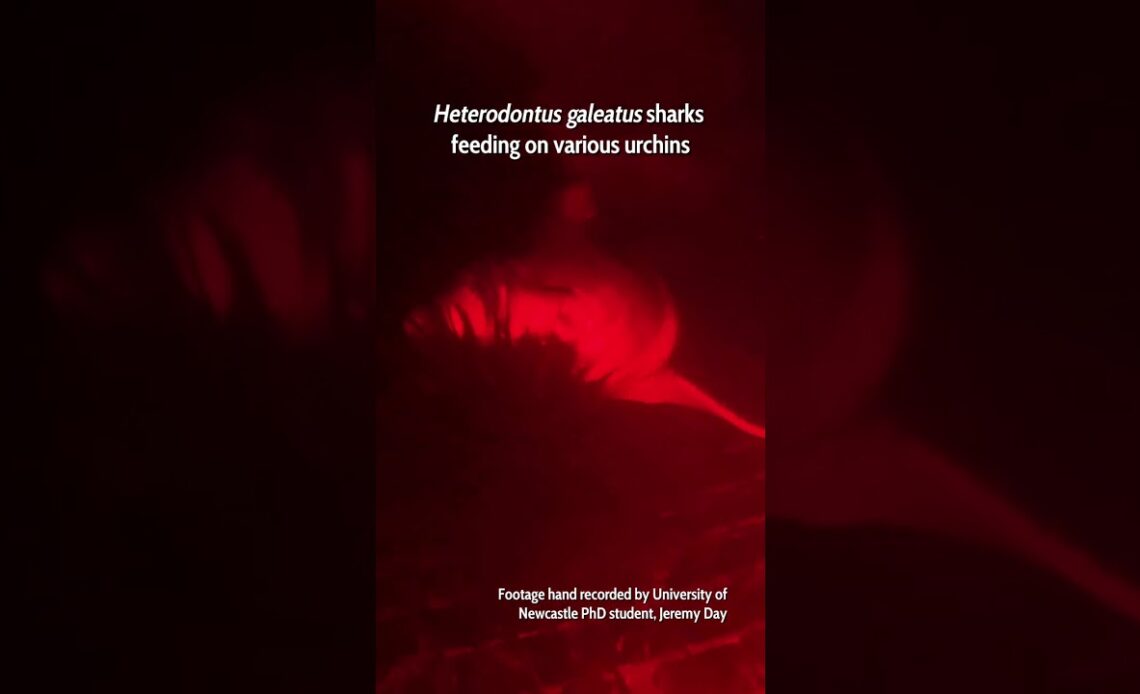Long-spined sea urchins have emerged as an environmental issue off Australia’s far south coast. Native to temperate waters around New South Wales, the urchins have expanded their range south as oceans warm. There, they devour kelp and invertebrates, leaving barren habitats in their wake.
Lobsters are widely accepted as sea urchins’ key predator. In efforts to control urchin numbers, scientists have been researching this predator-prey relationship. And the latest research by my colleagues and I, released today, delivered an unexpected result.
We set up several cameras outside a lobster den and placed sea urchins in it. We filmed at night for almost a month. When we checked the footage, most sea urchins had been eaten — not by lobsters, but by sharks.
This suggests sharks have been overlooked as predators of sea urchins in NSW. Importantly, sharks seem to very easily consume these large, spiky creatures — sometimes in just a few gulps! Our findings suggest the diversity of predators eating large sea urchins is broader than we thought — and that could prove to be good news for protecting our kelp forests.
Related: ‘It’s like we opened a buffet’: Sharks in Gulf of Mexico learn to steal food from fishing nets
A puzzling picture
The waters off Australia’s south-east are warming at almost four times the global average. This has allowed long-spined sea urchins (Centrostephanus rodgersii) to extend their range from NSW into waters off Victoria and Tasmania.
Sea urchins feed on kelp and in their march south, have reduced kelp cover. This has added to pressure on kelp forests, which face many threats.
Scientists have been looking for ways to combat the spread of sea urchins. Ensuring healthy populations of predators is one suggested solution.
Overseas research on different urchin species has focused on predators such as lobsters and large fish. It found kelp cover can be improved by protecting or reinstating these predators.

In NSW, eastern rock lobsters are thought to be important urchin predators. The species has been over-fished in the past but stocks have significantly bounced back in recent years.
But despite this, no meaningful reduction in urchin populations, or increase in kelp growth, has been observed in NSW.
Why not? Could it…
Click Here to Read the Full Original Article at Livescience…

